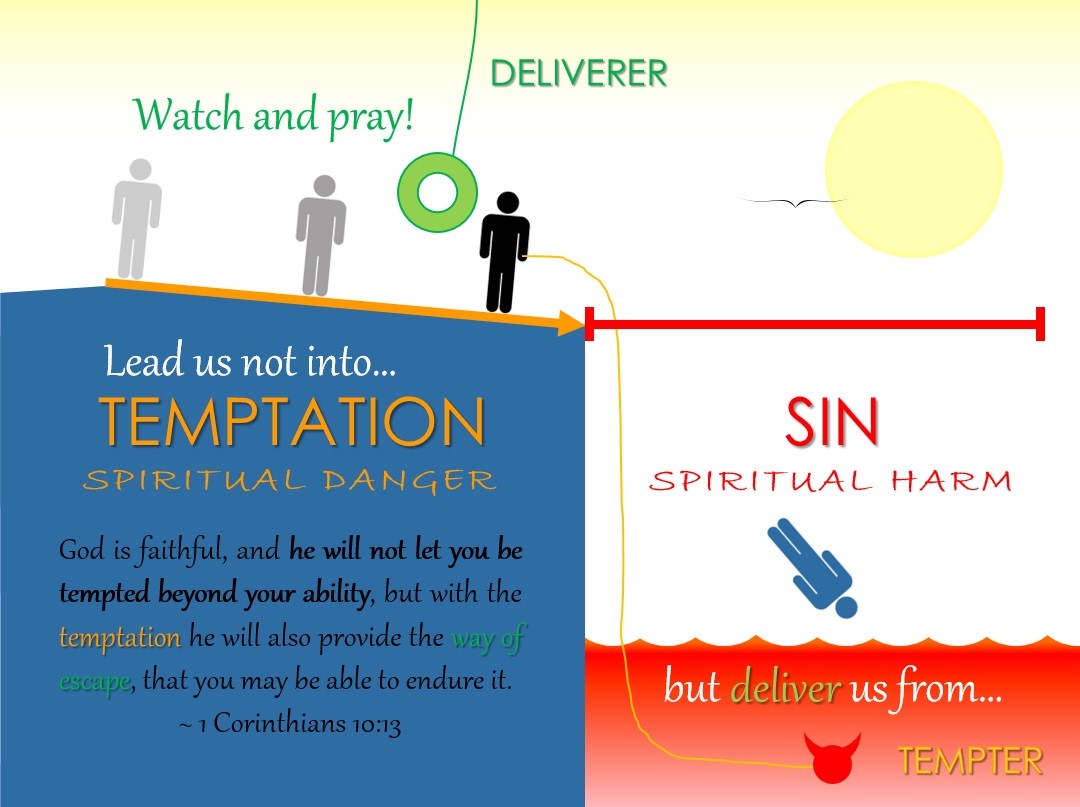Verbum Domini, the Apostolic Exhortation of Pope Benedict XVI published in 2010, is one of the more significant magisterial documents in recent years relating to the interpretation of Scripture in the Catholic Church. As its title (“the Word of the Lord”) suggests, it is quite intentionally written in the spirit of Vatican II’s Dogmatic Constitution on Divine Revelation, Dei Verbum (“the Word of God”).
History
The origins of the document can be traced back to the Twelfth Ordinary General Assembly of the Synod of Bishops, which took place in Rome in October 2008. The theme of this gathering of bishops, which had been chosen earlier that year by soliciting input from bishops conferences, superior generals, heads of Oriental Catholic Churches, and the dicasteries of the Roman Curia, was “the Word of God in the Life and Mission of the Church.”
In his introduction to Verbum Domini, Pope Benedict makes the connection to the previous synodal assembly on the Eucharist, noting that the word of God, like the Eucharist, is at “the very heart of the Christian life” (VD 3). Benedict also pointed to the path from Dei Verbum to the recent synod and how the purpose of this synod was further reflection upon and implementation of the Second Vatican Council’s teaching to address “new challenges which the present time sets before Christian believers” (VD 3).
The relationship between Dei Verbum and Verbum Domini can be seen not only in their titles, but in the fact that the 2008 synod’s theme of “the Word of God in the Life and Mission of the Church” was a paraphrase of the title of the sixth and final chapter of Dei Verbum: “Sacred Scripture in the Life of the Church.” What Dei Verbum chapter 6 had set forth in six paragraphs, Verbum Domini would flesh out in 124. The latter document would be able to take the teaching of the Council and develop it in greater depth with respect to issues and challenges of our day.
Structure
Verbum Domini is divided into three main sections. The first, titled Verbum Dei (“the Word of God”), focuses on the nature of biblical revelation. Noted first of all is the reality that it is God who speaks, that is to say chooses to reveal himself, in a variety of ways: in all of creation, in our human conscience, through the incarnation, as well as in sacred Scripture. Verbum Domini highlights that Christianity is the “religion of the word of God” in all of these senses, which are interrelated (VD 7). The text then goes on to talk of our response to the God who speaks, once more mirroring Dei Verbum, which also spoke of a dialogue between God and man (DV 25). Section 1 concludes by discussing the interpretation of sacred Scripture in the Church. This section draws and builds upon not only Dei Verbum, but especially two documents of the Pontifical Biblical Commission: The Interpretation of the Bible in the Church (1993) and The Jewish People and their Sacred Scriptures in the Christian Bible (2001). The most distinctive and original part of this section deals with the appropriation of Vatican II’s biblical hermeneutic, a point we will return to below.
The second main section, titled Verbum in Ecclesia (“the Word in the Church”), most directly corresponds to the theme addressed by the synod of bishops: “the Word of God in the Life and Mission of the Church.” While this section touches upon a number of ways in which Scripture is key in the life of the Church, its most extensive treatment is on the Liturgy and Scripture, emphasizing how the Church’s Liturgy is the privileged setting for proclaiming and hearing the word of God. This point will also subsequently be discussed at greater length.
The final main section, titled Verbum Mundo (“the Word to the World”), turns to consider how the Church’s fundamental mission of evangelization is directly tied to the proclamation of the word of God. It goes on to speak of the Bible in its relationship culture, both as a foundation for human cultures and as ultimately transcending cultural limits. This section concludes with a consideration of the role of Scripture in inter-religious dialogue.
Some major themes and developments
As noted above, Verbum Domini is firmly grounded in the Church’s magisterial teaching, especially from Leo XIII’s ground-breaking encyclical Providentissimus Deus through Vatican II’s Dei Verbum, as well as more recent documents of the Pontifical Biblical Commission. Its purpose is not to define any new doctrine on Scripture or its interpretation, but to serve as a true Apostolic Exhortation, providing guidance and orientation of a pastoral nature. It does this by highlighting key themes, especially from Dei Verbum, and calling for their fuller development and application in our present world. Benedict XVI gave a preview of this orientation when, during an intervention at the synod on October 14, 2008, he made reference to a missing full reception of Dei Verbum, especially on the theme of exegesis and the hermeneutic of faith.1
What did Pope Benedict end up saying in Verbum Domini in this regard?
The inspiration and truth of Scripture
Throughout the Church’s history, the single most-repeated dogmatic claim regarding Scripture is that “all Scripture is inspired by God” (2 Tim 3:16). As Verbum Domini points out, “the theme of inspiration is clearly decisive for an adequate approach to the Scriptures and their correct interpretation” and is linked to the theme of “the truth of the Scriptures” (VD 19). In spite of the importance of these themes, they have not been theologically developed in great detail. Verbum Domini quotes Dei Verbum 11 at length on this topic, while calling for “a deeper study of the process of inspiration” which should “lead to a greater understanding of the truth contained in the sacred books” (VD 19).2
The reason for this appeal is perhaps the uneven development of Catholic biblical scholarship since the time of the Council, which Benedict will mention in subsequent paragraphs. While great strides have been made in the scientific study of Scripture, which examines the word in its historical, cultural, and literary contexts, the theological dimension has lagged somewhat behind. As Benedict write, “Whenever our awareness of its inspiration grows weak, we risk reading Scripture as an object of historical curiosity and not as the work of the Holy Spirit” (VD 19).
The ecclesial dimension of biblical interpretation
One of the most important and central themes of Verbum Domini is the relationship between the Bible and the Church.3
The final section of part 1 (numbers 29–49) develops in depth this relationship and its implications. It lays out “a fundamental criterion of biblical hermeneutics: the primary setting for biblical interpretation is the life of the Church” (VD 29). Further on it states: “The Bible is the Church’s book, and its essential place in the Church’s life gives rise to its genuine interpretation” (VD 29). A hermeneutic of faith rooted in the life of the Church is essential to arriving at the correct interpretation and the truth of Scripture. Benedict once more quotes Dei Verbum at length as it speaks of Scripture as both a human and a divine word (DV 12). One must be attentive to both the human and the divine dimensions of the text. Regarding the human dimension, Benedict is laudatory of the gains of modern historical-critical research, including the contributions of Catholic exegetes. He comments, however, that “comparable attention needs to be paid to the theological dimension of the biblical texts” (VD 34). This will be achieved through attention to three criteria indicated by Dei Verbum 12:
- The unity of Scripture
- The living Tradition of the Church
- The analogy of faith
Benedict goes on to caution that these two levels of approaching Scripture (the scientific and the theological) should not be separated, opposed, nor even merely juxtaposed. Rather, they exist in a reciprocal relationship. Here he calls upon John Paul II’s Encyclical Fides et Ratio in proposing an approach to Scripture that integrates faith and reason. Only thus will one avoid the opposing errors of either a purely secularized hermeneutic (detached from faith) or a fideistic or fundamentalist hermeneutic (detached from reason). More than this, Benedict states that “interpretation is never purely an intellectual process but also a lived one” (VD 38). He returns twice more to the criteria from Dei Verbum 12 in order to emphasize that authentically interpreting Scripture according to the Spirit in which it was written demands “full engagement in the life of the Church (VD 38) and attention to the unity of Scripture which is grounded in “the person of Christ” (VD 39).
The Bible and the liturgy
If the Church and the life of faith are key to an authentically Christian and Catholic interpretation of Scripture, it makes sense that the public prayer of the Church—the liturgy—has an important role to play with respect to the word of God. The entire first half of section 2 focuses on the liturgy as the privileged setting for this word. Foundational to this discussion is the recognition of “the relationship between word and sacrament” (VD 53). Verbum Domini points out that “In salvation history there is no separation between what God says and what he does” and that in the liturgy as well “we encounter his word which accomplishes what it says” (VD 53).
In this section, Benedict draws especially upon the Constitution on the Sacred Liturgy (Sacrosanctum Concilium) from Vatican II, as well as his previous post-synodal Apostolic Exhortation, Sacramentum Caritatis (2007), to highlight the inseparable bond between Scripture and the Eucharist. As he states: “Word and Eucharist are so deeply bound together that we cannot understand one without the other: the word of God sacramentally takes flesh in the event of the Eucharist. The Eucharist opens us to an understanding of Scripture, just as Scripture for its part illumines and explains the mystery of the Eucharist” (VD 55).
Several suggestions and practical proposals are set forth regarding the use of Scripture in the liturgy. Some of these are as simple as calling for moments of silence to reflect upon the word, or attention to the suitable placement of the ambo for the proclamation of the word. Among the more significant directives is the reaffirmation of the ancient teaching of the Church that “the readings drawn from sacred Scripture may never be replaced by other texts” inasmuch as no other text “can equal the value and riches contained in sacred Scripture, which is the word of God” (VD 69).
The prologue of John’s Gospel as a guide
At the end of the introduction to his Apostolic Exhortation, Benedict himself gives us a key to understanding the whole of what he writes. He proposes to make constant reference to the prologue of John’s Gospel (John 1:1–18) as a guide. This will serve as a constant reminder that the word of God that we hear, read, and study in Scripture is in fact a living, incarnate Word that we encounter. Benedict’s prayer is that “we allow ourselves to be led by the Holy Spirit to an ever greater love of the word of God” (VD 5).
John’s prologue reminds us first of all that the Word is personal; in fact he is the Second Person of the Holy Trinity. Each of the three main sections of Verbum Domini is prefaced by a brief quote from John’s prologue. Part 1 has: “In the beginning was the Word, and the Word was with God, and the Word was God … and the Word became flesh” (John 1:1, 14). To encounter Scripture is to encounter the incarnate Christ, which is also to encounter the God who reveals himself to us by becoming human. The prefatory quote from part 2 proclaims: “But to all who received him he gave power to become children of God” (John 1:12). Central to everything that Benedict writes in this Apostolic Exhortation is the underlying reality that our encounter with the living Word of God is not merely a matter of learning information, but rather has as its goal our profound transformation. It is a matter of loving, even more than knowing.
Ready to learn more about Verbum Domini and Vatican II? Start here:
Inspiration and Interpretation: A Theological Introduction to Sacred Scripture
Price: $27.99
This Sacred Council: Exploring the Documents of the Second Vatican Council, Volume 1: The Opening Speech and Dei Verbum
Price: $12.95
- Carmen Aparicio Valls and Salvador Pié-Ninot, Commento alla Verbum Domini (Rome: Gregorian & Biblical Press, 2012), 24.
- This call was taken up by the Pontifical Biblical Commission with its 2014 document, The Inspiration and Truth of Sacred Scripture.
- This was already a main theme of the PBC’s The Interpretation of the Bible in the Church (1993), which Verbum Domini cites at various points throughout this section.






